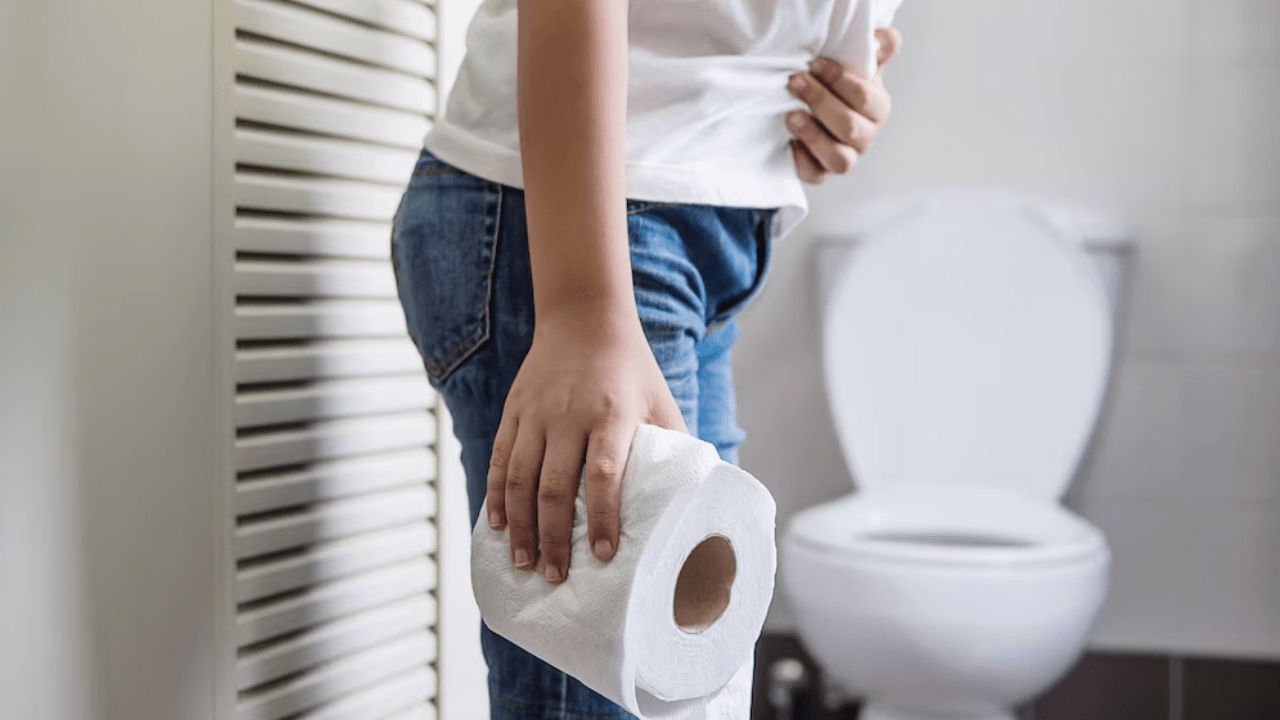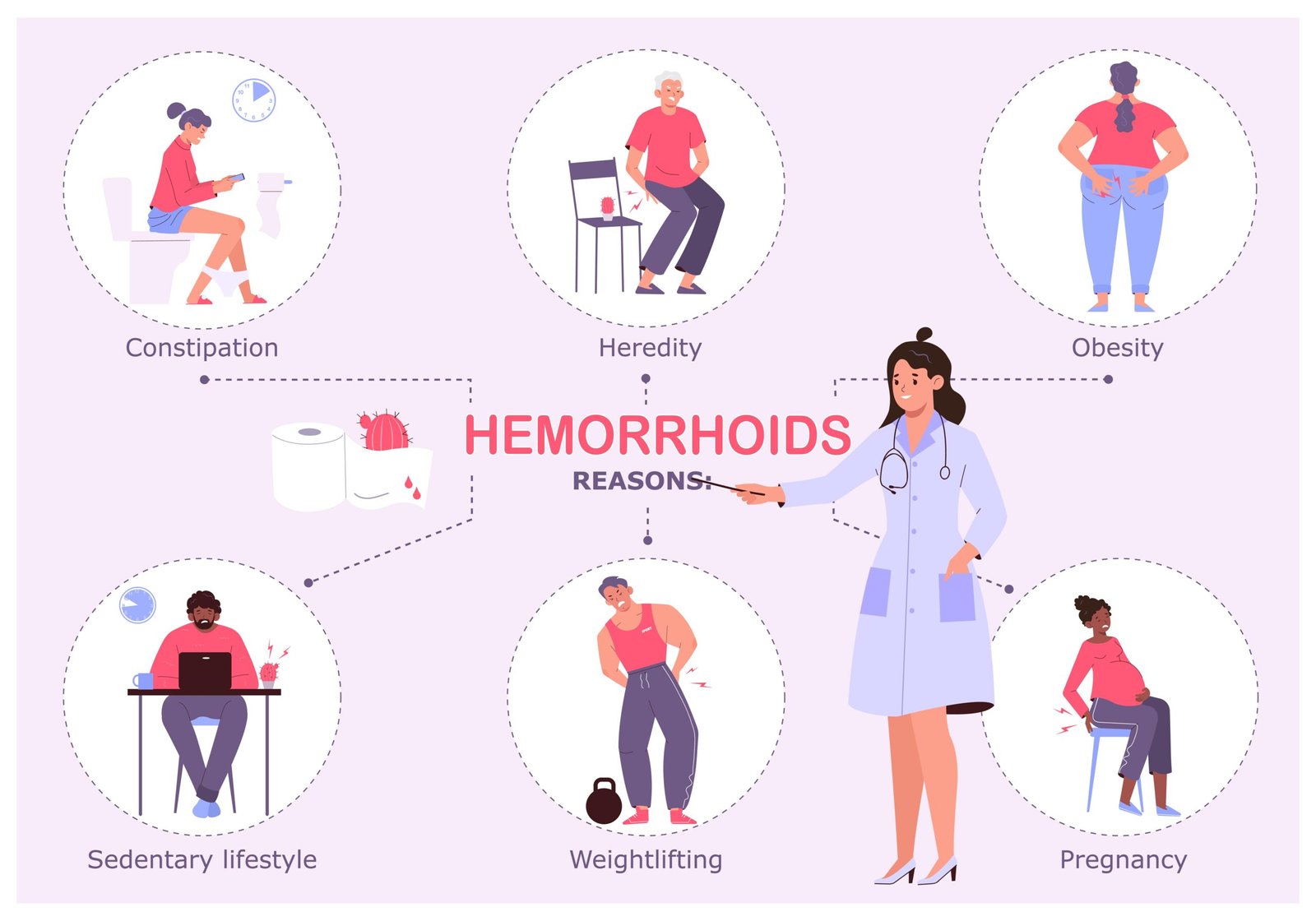Understanding the causes, symptoms, and treatments for piles and hemorrhoids. Learn about effective home remedies and medical options to alleviate discomfort and promote healing. Get comprehensive insights to manage and prevent hemorrhoids naturally!

Hemorrhoids, or piles, are enlarged veins found in the region between the lower rectum and anus. They are a common ailment, particularly among adults aged 45 to 65, and can cause significant discomfort, itching, and bleeding. Understanding the causes, symptoms, and treatments of hemorrhoids is essential for effective management and prevention of this condition.
What is Piles and Hemorrhoids?
Hemorrhoids are vascular structures in the anal canal that aid in stool control. When these structures become swollen or inflamed, they are referred to as piles. Internal and external hemorrhoids are the two categories into which they fall.
Internal Hemorrhoids: Located inside the rectum, these hemorrhoids are usually painless but can cause bleeding during bowel movements.
External Hemorrhoids: Found under the skin around the anus, these hemorrhoids can be painful and may cause itching and swelling.
Causes of Piles
The following are some of the reasons that might lead to piles and hemorrhoids:
- Straining During Bowel Movements: This is often due to constipation, which puts extra pressure on the veins in the rectum.
- Chronic Diarrhea or Constipation: Both conditions can cause strain and lead to hemorrhoid formation.
- Sitting for Long Periods: Particularly on the toilet, which can increase pressure on the anal region.
- Being overweight (Obesity): Carrying too much weight around might put pressure on the veins in the pelvis.
- Pregnancy: The increased pressure from the growing uterus can cause piles and hemorrhoids.
- Diet Low in Fibre: Consuming food low in fiber can cause constipation and difficulty passing stool.
- Heavy Lifting: Frequent lifting of heavy objects can increase abdominal pressure, leading to piles and hemorrhoids.
- Aging Factor: Hemorrhoids are more common as we age because the tissues supporting the veins in the rectum and anus might weaken and stretch.

Symptoms of Piles and Hemorrhoids
Common symptoms of piles and hemorrhoids include:
- Pain or discomfort around the anus.
- Itching or irritation in the anal region.
- Swelling around the anus.
- Bleeding during bowel movements.
- A potentially unpleasant or sensitive muscle lump close to the anus.
- Internal hemorrhoids may also cause painless bleeding during bowel movements, while external hemorrhoids can lead to significant pain and discomfort.
Significance and Importance of Addressing Hemorrhoids
Addressing hemorrhoids promptly is crucial for several reasons:
Preventing Complications: Untreated hemorrhoids can lead to more severe conditions such as anemia from chronic blood loss or strangulated hemorrhoids.
Improving Quality of Life: Effective management can alleviate pain and discomfort, enhancing overall well-being.
Preventing Recurrence: Understanding and addressing the underlying causes can help prevent future occurrences.
Home Remedies for Piles
Many people can manage mild hemorrhoid symptoms with simple home remedies:
- High-Fiber Diet: Eating more fruits, vegetables, and whole grains can soften the stool and increase its bulk, reducing straining during bowel movements.
- Proper Hydration: Getting enough water in your diet will help stave off constipation.
- Warm Sitz Baths: Sitting in warm water for 10-15 minutes several times a day can relieve symptoms.
- Adding Epsom salts can enhance the soothing effect.
- Topical Treatments: Over-the-counter creams and ointments containing hydrocortisone can reduce pain and swelling. Pads made of witch hazel may also be relieving.
- Cold Compresses: Applying ice packs to the affected area can decrease swelling and numb the pain.
- Proper Hygiene: Keeping the anal area clean and dry can prevent irritation and infection. Use moist towelettes or gentle, unscented wipes instead of dry toilet paper.
- Avoiding Strain: Not straining during bowel movements and avoiding sitting on the toilet for extended periods can help. Using a stool to elevate your feet while sitting on the toilet can change the position of the rectum, making it easier to pass stools.

Medical Treatments for Piles and Hemorrhoids
When home remedies are not sufficient, medical treatments are available:
Over-the-counter medications: Creams, ointments, suppositories, and pads can provide relief. Products containing hydrocortisone can reduce inflammation, while those with lidocaine can numb the area and reduce pain.
Minimally Invasive Procedures:
-Rubber Band Ligation: A rubber band is placed around the base of the hemorrhoid to cut off its blood supply, causing it to shrink.
-Sclerotherapy: The hemorrhoid is injected with a fluid, which causes it to contract.
-Coagulation: Laser or infrared light is used to harden and shrink the hemorrhoid.
Surgical Options:
-Hemorrhoidectomy: Surgical removal of hemorrhoids. This procedure is effective for severe or recurring hemorrhoids.
-Hemorrhoid Stapling: A procedure that blocks blood flow to hemorrhoidal tissue, causing it to shrink. This method typically results in less pain than a hemorrhoidectomy.
Preventing Piles and Hemorrhoids
Prevention is better than cure. Here are some tips to prevent hemorrhoids:
- Eating a High-Fiber Diet: Incorporate plenty of fiber-rich foods into your diet to prevent constipation.
- Staying Hydrated: Drink plenty of fluids to keep stools soft.
- Regular Exercise: Physical activity can help prevent constipation and reduce pressure on veins.
- Avoiding Strain: Don’t strain during bowel movements and avoid sitting on the toilet for long periods.
- Responding Promptly: Don’t ignore the urge to have a bowel movement.
- Maintaining a Healthy Weight: Reducing excess weight can decrease the pressure on pelvic veins.
Summary
Hemorrhoids, while common and often uncomfortable, can be effectively managed with proper care and treatment. Early identification and remediation can be aided by knowledge of the causes and symptoms. Incorporating dietary changes, adopting good bathroom habits, and using home remedies can provide relief. For persistent cases, medical treatments are available. By taking preventive measures, you can reduce the likelihood of developing hemorrhoids and improve your overall quality of life.
By following these guidelines and maintaining a healthy lifestyle, you can manage and prevent hemorrhoids, ensuring better digestive health and comfort.
Read Next:

The Psychology of Love: Why Valentines Day Matters More Epic Than You Think
Discover the psychology of love and why Valentines Day is more important than you think. Learn how love impacts the brain, strengthens relationships, and boosts

Premier League Highlights: Arsenal Humiliate Man City 5-1, Spurs and Palace Secure Crucial Wins
Arsenal demolished Manchester City 5-1 in a statement premier league highlights win, reigniting their title hopes. Meanwhile, Crystal Palace stunned Man United 2-0, and Tottenham

How Budget 2025 Impacts the Indian Middle-Class: Major Tax Benefits and Glaring Omissions
Budget 2025 offers major tax relief to the middle class, including zero tax on incomes up to ₹12 lakh. However, it misses out on incentives

Degrees vs Employability: Why “Highly Qualified Degree Holders” Struggle to Find Jobs While “Less Qualified Individuals” Get Hired Faster!
Many highly qualified individuals struggle to secure jobs, while less qualified candidates get hired quickly. This Degrees vs Employability paradox is caused by employer preferences,

The Power of Mindset: Why Looking Poor Doesn’t Make You Poor, but Thinking Poor Does!
Discover why looking poor doesn’t define your wealth but thinking poor does. Learn the power of mindset and how a growth-oriented mindset can lead to

Overthinking: How It’s Damaging Today’s Youth – Causes and Cure in 2025
Understanding how overthinking is silently damaging today’s youth, from its causes rooted in societal pressure and social media to its long-term effects on mental health.
